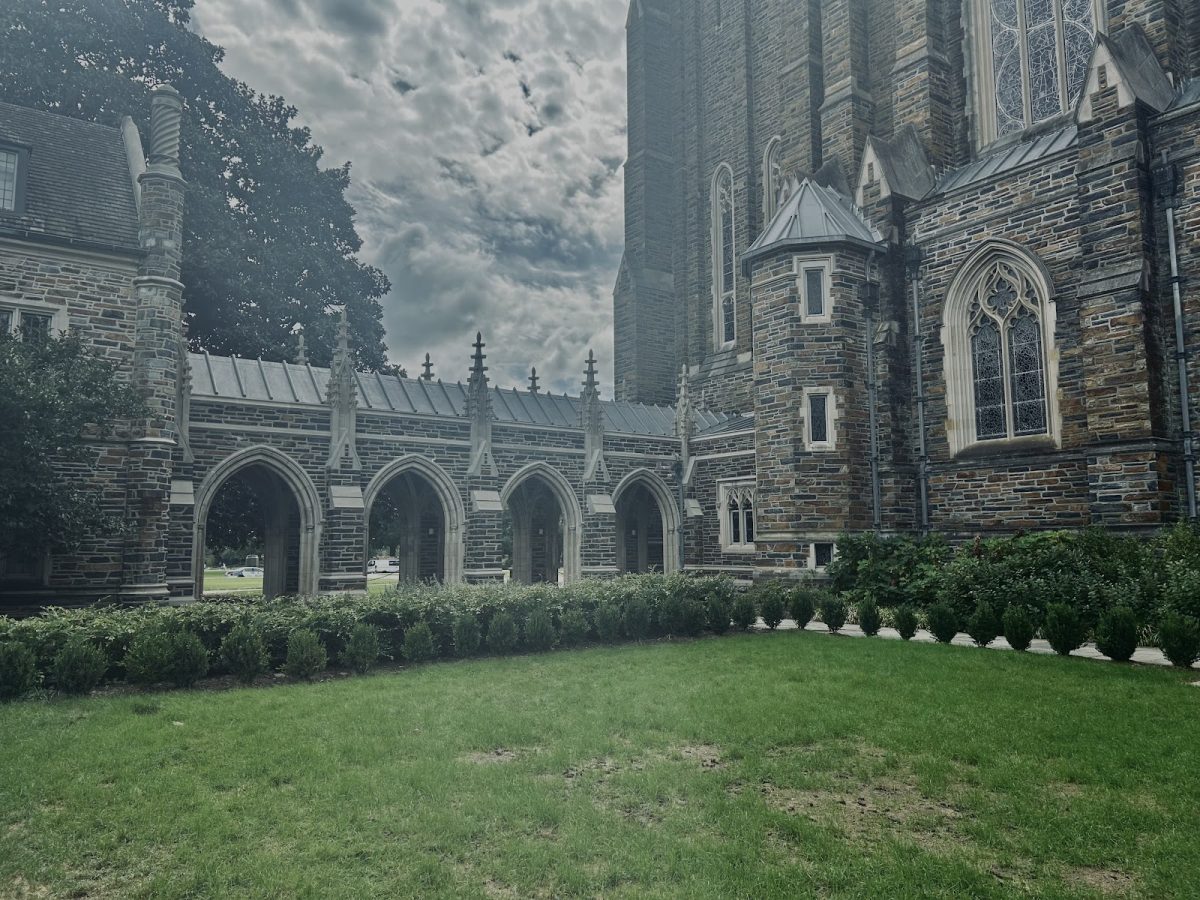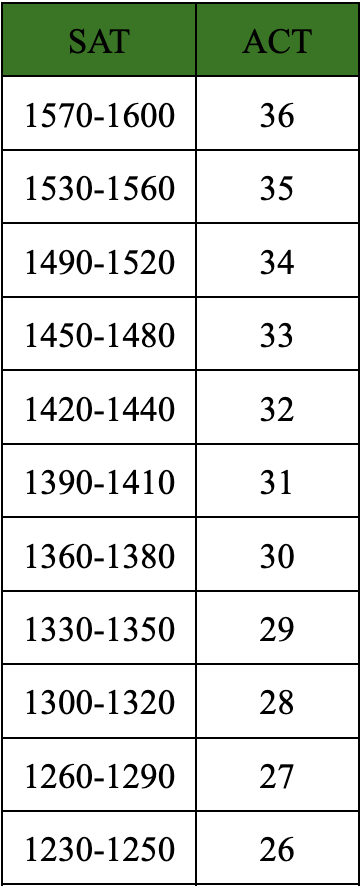Senior guide: College applications

If you haven’t made your Common Application account, stop reading and go make one! Creating an account and understanding this platform is crucial to a successful application process. While most colleges use the Common App portal, not all schools accept it. Instead, they could opt for their own application forms, so look for your college’s preferences. A few schools that have their own application websites include the University of California system, Massachusetts Institute of Technology (MIT) and Georgetown University.
In Common App, you can add schools to your dashboard using the “College Search” feature. Clicking on the different college profiles will provide lots of information about what each school requires. Next, make sure to take enough time to familiarize yourself with the website; you don’t want to find a new section the night before it’s due!
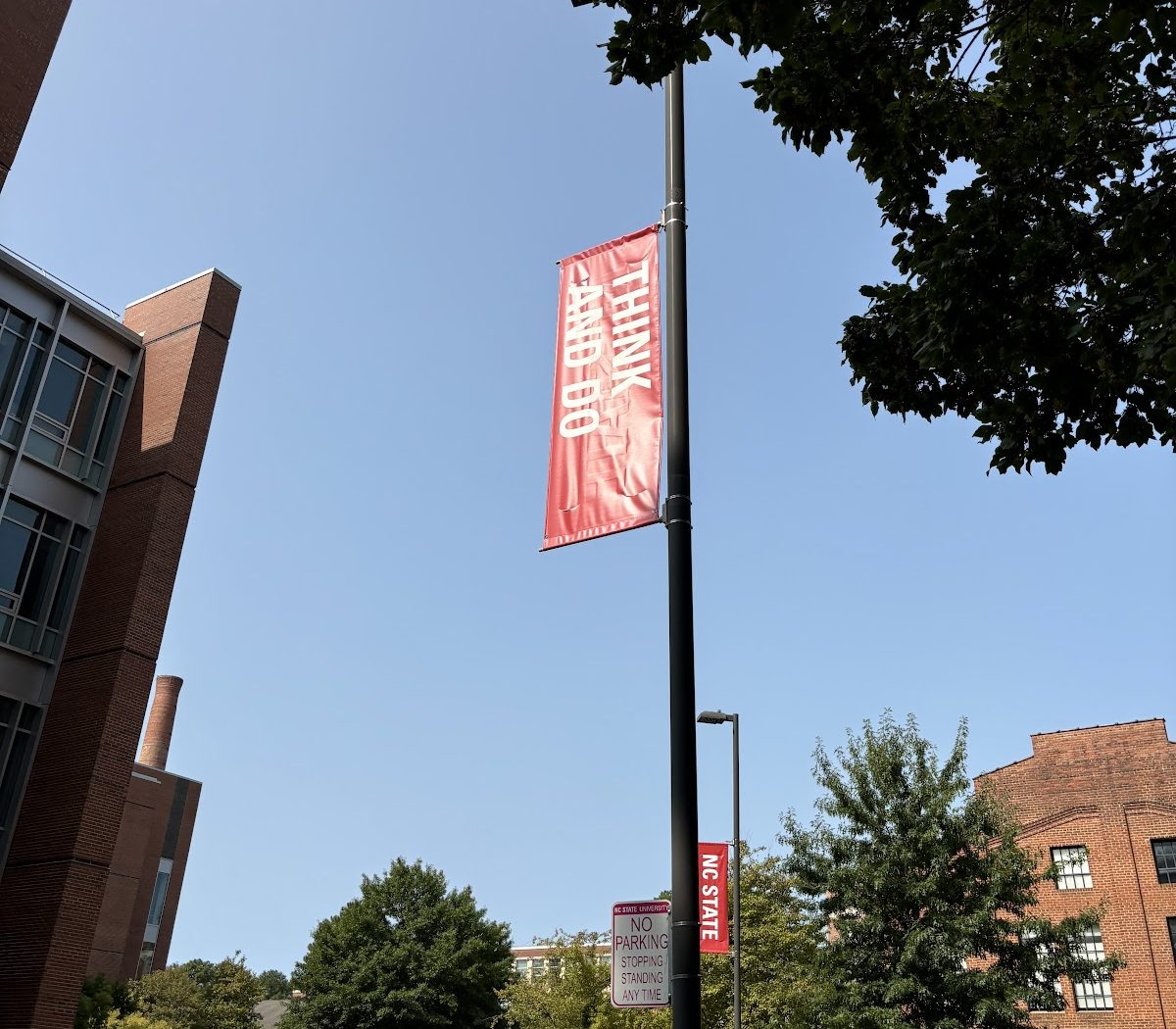
During this process, students are told many places that they should apply to. However, it is important to understand which schools are a good fit for you. There are numerous factors to take into account when considering a school, so make sure to research and apply to places you actually want to spend four years at. Make sure to apply to safety, target and reach schools for a well-rounded college list.
While you don’t have to have a specific major selected all of the time, it is important to know what each school is known for to find the place that will best suit your academic goals. Schools like Virginia Tech and Georgia Tech are technical colleges with strong departments in engineering and hands-on learning. North Carolina State is best known for its agricultural, engineering and architecture programs; however, for this university, you must apply directly to a major, making certain fields harder to get into. In addition to figuring out a pathway, it’s important to have a good idea of how far you want to go from home and how this affects admission rates and tuition for in-state versus out-of-state schools.
Tuition is a major factor to consider. While there are many in-state small liberal arts colleges, these are typically private schools and will, in turn, have much higher tuition than state schools. Using websites such as Net Price Calculator can help clarify the total cost of attendance at your colleges of interest. Keep in mind that community colleges are also a great, cost-efficient option for students. Community colleges allow students to transfer directly to other colleges through programs like the University of North Carolina at Chapel Hill’s C-STEP Transfer Program at Wake Technical Community College.
In addition to browsing college websites, tools such as College Board’s BigFuture search engine can provide helpful information. There are also college guidebooks that are a valuable asset for understanding the feel of the schools you are interested in. However, the best way to have a good understanding of your potential college experience is to visit their campus. Nowadays, many colleges also offer virtual tours. When visiting a campus, be sure to come with questions and consider talking to students or the admissions office. Be observant and take your time to explore.
Make sure to add your final list of colleges to your CommonApp dashboard (if applicable) and browse their specific requirements. Some colleges will provide an option to apply to their honors college. Do some research to see if this is something you would be interested in. Benefits of Honor colleges include thought-provoking courses with rich discussions, like-minded peers and more leadership opportunities, mentorships and specialized courses. Honor colleges have additional essay prompts to answer and may require taking extra steps before submitting your application.
Score Submission Requirements: Most colleges are test-optional for the 2025 application process, meaning that submitting scores is not mandatory. However, the UNC System schools recently updated their protocol so that students with a weighted GPA between 2.5 and less than 2.8 must submit SAT or ACT scores. While test scores aren’t everything, it is important to make an educated decision about whether or not to submit them by knowing score ranges for schools you are interested in. Additionally, it could help to understand whether your SAT or ACT score is better (can be determined by converting SAT into ACT scores, or vice versa) if you wish to only submit one. (see chart)
Superscoring: When self-reporting a single score, make sure to submit the highest score possible. If you have taken multiple SAT tests, add your highest math score and reading/writing score received to find your SAT superscore. The same thing can be done with ACT scores. The official ACT website will automatically display your superscore; make sure that is the one you are self-reporting. Again, it is important to know what your schools of interest will accept superscores as most, but not all schools do.
Next Testing Sessions: Unhappy with your scores? Registrations for the Oct. 5 SAT or Oct. 26 ACT are open until Sept. 20 (or later with an extra fee). Early applicants, factor in score release time periods and potential delays before registering! Additionally, check if the colleges of your choice have a separate score submission deadline, which allows score submissions after application deadlines. Keep in mind that if your score aren’t in by the time applications are read, it will not be considered.
While Common App provides a space for you to self-report scores, your official score reports will also need to be sent via College Board and ACT.org. By navigating to the scores section on each webpage, you will find directions for this process.

Choosing Recommenders: Selecting teachers for recommendations is necessary for the application process. Even if you are applying regular decision, letting teachers know well ahead of the deadline and checking in with them in-person will make the process smoother. Now that it is fall, it is a great time to stop by their classroom. Ensure that you send them an email with a resume/brag sheet after they accept your request.
In a perfect world, you should have 1-2 core subject teachers from your junior year that would be willing to write these for you; along with their letters, it is acceptable to have a language or elective teacher write one as well. While not ideal, sophomore-year teachers are also an option.
You will also need recommendations from your counselor. To send a request, make sure to fill out their Google Form (at least 3 weeks prior to your deadline)– do not email them! It is suggested that you attach your resume. This link can be found in the Senior canvas page in the conference appointment announcement.
Keep in mind that the counselors (and teachers) can submit their recommendations/reports even after students’ deadlines and they will still be reviewed by colleges– but make sure to add them early! To do this, go to the “My Colleges” tab and click on any school. Adding them to one school’s recommendation section will still allow you to assign them to all the schools you wish to apply to.
Number of Recommendations: While the required number of letters differs by college, it is important to have more options than you think you need. Aim to pick teachers who know you well and whom you are in good standing with. Common App also offers a section for other recommenders and will list the types of people each college accepts. This is a great spot to invite anyone who can express your dedication within settings such as school, sports, jobs, or more.
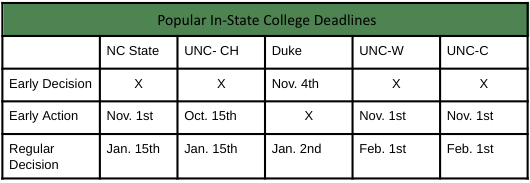
When deciding the best time to apply, it is crucial to understand the three different admission pathways. Early action is a nonbinding agreement, meaning you can apply without committing to that school. For certain schools, applying earlier could boost your chances of admission by a small margin. This is also beneficial since you will receive an admission decision much earlier (and get to relax sooner!). On the other hand, early decision is a binding agreement, meaning you must go to that college if accepted. While not many schools offer this, this pathway will show commitment to admissions officers. However, only apply early decision if you are 100% comfortable with going to that school and paying its tuition, regardless of any acceptances you receive from other schools.
Lastly, regular decision is a nonbinding agreement with later deadlines, but consequently, it will take longer to receive a decision. While it is often recommended to apply early to your top schools, the choice is yours. Make sure to prioritize the closest deadlines while balancing school, work, extracurriculars and your mental health.
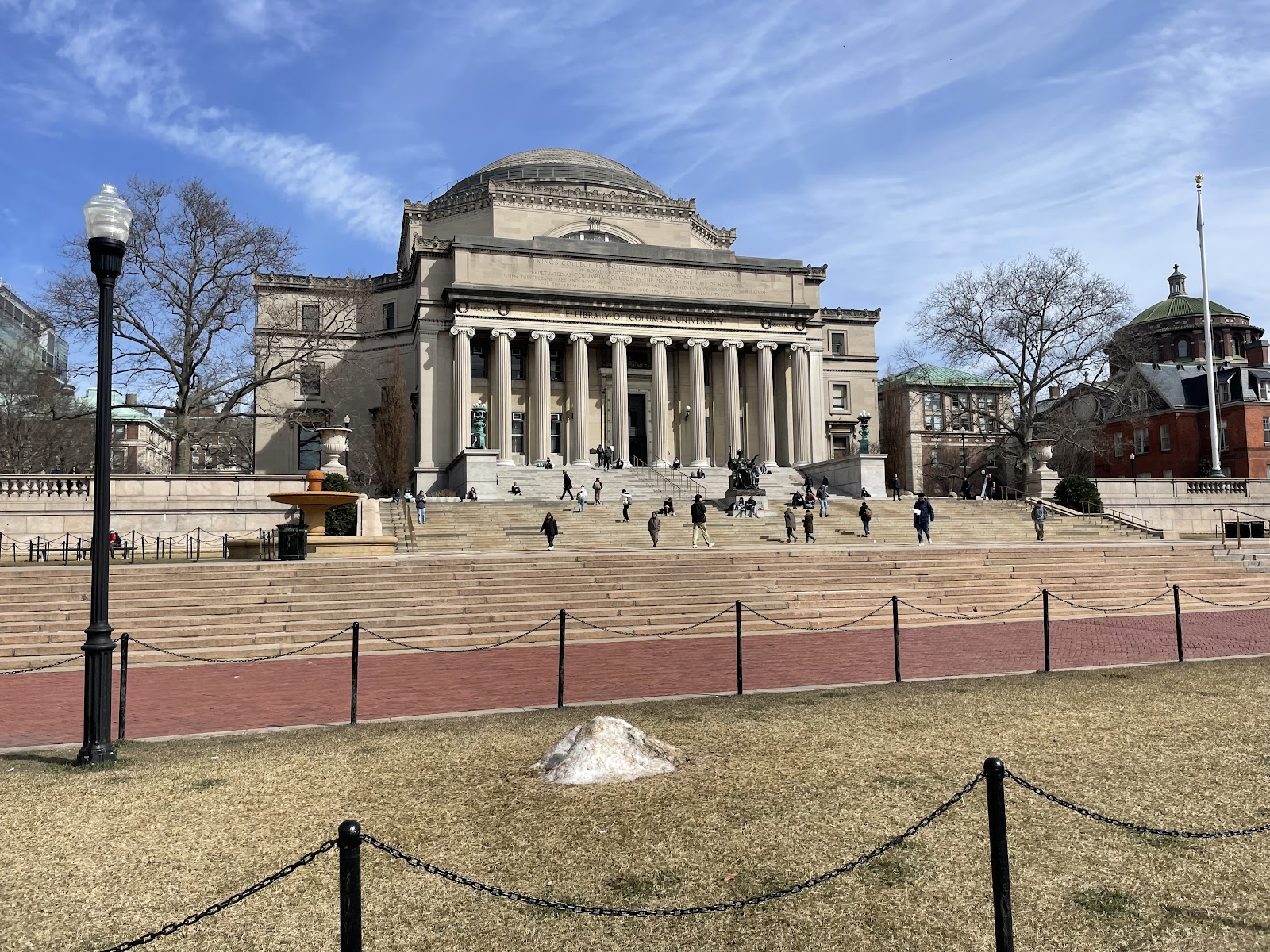
Don’t underestimate the importance of scholarships and financial aid! There are many resources available for students to explore all their options. While the student services canvas page has some resources, most scholarship information can be found on the GHHS website by going to students > student services > preparing for college/career. It is recommended that all students should try to apply for Free Application for Federal Student Aid (FAFSA) unless you are absolutely positive you will not qualify for this need-based aid.
Green Hope offers financial aid advising services to students. Refer to the student services webpage/canvas to find more information on how to schedule an appointment with Mrs. Linda Brannan, our Financial Aid Advisor.
On the topic of merit-based aid, also linked on the webpage is the scholarship newsletter. This spreadsheet provides the most up-to-date scholarship information that the counselors have– detailing the colleges that provide them, due dates, amounts, requirements and more. It is updated monthly so keep referring back to it. Additionally, it links search engines that can help you find more specific scholarships that could be a better fit.
Even if scholarship amounts don’t seem like a lot, any that get awarded will start to pile up fast and can have a significant impact. However, don’t let this stress you out too much since most scholarships can be taken care of after you submit your application. Be aware of the fact that you will have to complete several steps to apply to these and likely write additional essays.
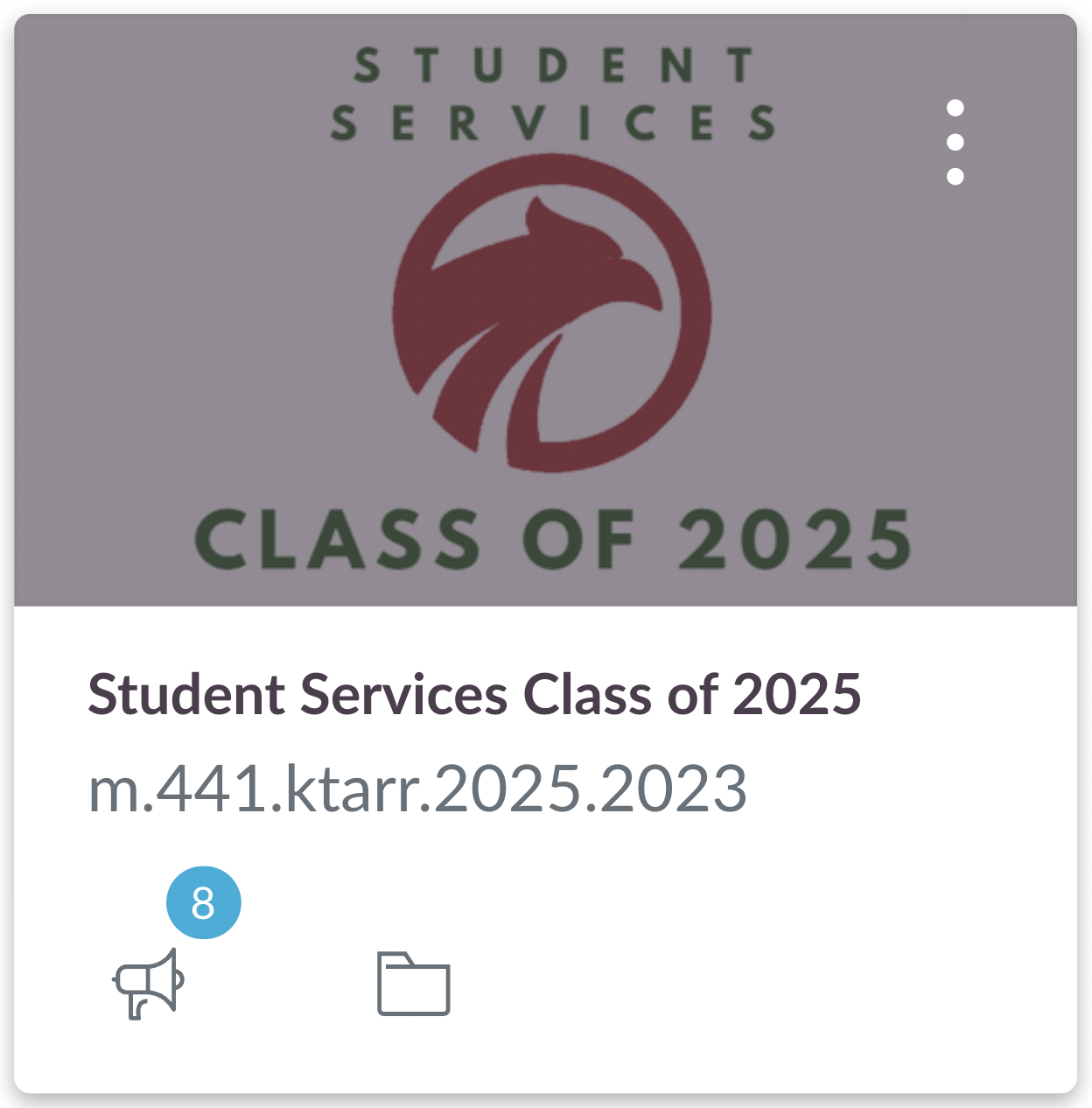
In addition to knowing where to find the Student Services webpage, make sure you are enrolled in the Student Services Class of 2025 course on Canvas to stay up-to-date on important information sessions and workshops! An upcoming date to be aware of is the Scholarship Search & Applications on Wednesday, Sept. 18. This will take place A-Half in the Auditorium. The slides from the first lunch presentation (Monday, Sept. 9) are available on the “files” section of the Student Services Canvas. We highly recommend reviewing these if you missed the meeting; they give even more in-depth information then we have covered.
Senior conference appointments are now open! Make sure to log onto the canvas announcement page in order to snag your spot. If your interactions with your counselor have been limited over the years, booking a senior conference is a good way to have them put a face to a name and let them know more about you. This will provide the opportunity to discuss your graduation progress, career planning, scholarships, career goals and ask any Common App questions.

- Residency: For applying to in-state schools, you will need to prove your residency by acquiring a Residency Determination Number. Visit ncresidency.org to complete the request for one. It takes 15-20 minutes but involves personal information, like social security and driver’s license numbers, so sit down with a parent to complete this process.
- Class Rank: For Common App questions about graduating class size and class rank, remember that updated transcripts will be available for request in late-September. If your college requests it, class ranks will also be updated for mid-year transcripts in late January to include finalized first-semester grades.
- Essays: Remember that you are not only submitting a 650-word Common App essay, but also various supplemental essays for each individual school. It is important to do in-depth research on the school’s website or other sources before writing these. You don’t want the admissions officer to think you copy-and-pasted your essay from another school and just changed around the names. While there are countless resources for writing your main 650-word essay, our best advice is to find a unique perspective on your chosen topic, avoid cliches and write in a style that sounds like you (i.e. avoid using overly flowery language and big words).
- Information Section: Common App provides a spot for additional information in the writing section of the “Common App” tab. This provides an area for you to talk about long-lasting disruptions in your life or any circumstances or qualifications not reflected in your application: transferring schools, medical conditions, working to support your family, etc. Only respond in this section if you have a legitimate reason too and focus on a more positive outlook on the situation– don’t use this as an area to complain.
- Resume: Having a resume is a useful tool for certain applications. Some colleges will have a mandatory or optional space in Common App for you to upload a resume. Key things to include on your resume are school activities, volunteer & employment, AP & dual enrollment, awards, honors, certifications and languages. Try to limit this to one page! Admission officers do not have much time to read your application and only want to see the highlights, not your whole life story.
- Majors with Extra Requirements: If you are applying directly into a major, remember that some majors (usually studio-based majors) could require a portfolio, extra essay, or extra recommendations! For example, NC State’s College of Design recommends submitting your application around mid-October. This is so you can gain access to their WolfPaw portal and have time to submit your portfolio and essay by the hard Nov. 1 deadline.
- Last-Minute Activities: Don’t panic and feel like you have to compensate for a weaker activities section by joining many clubs this semester. Colleges would rather see quality over quantity. They look for continual involvement and passions to be displayed in extracurriculars – emphasize the commitment you demonstrate in activities that you’ve been involved in for the past few years.
- Planning: Our last piece of advice is to stay on top of deadlines! If you have never used a planner up to this point, now is the time to start. Finding a method that works best for you is crucial to keeping up with your schoolwork, personal agenda and applications during this busy time. You got this, seniors!
The staff of the GHFalcon would love a donation to help the journalism program at Green Hope continue to flourish. Many of our donations go to towards improving the materials that we deliver to you in electronic format. Thank you so much to those that are able to donate.



